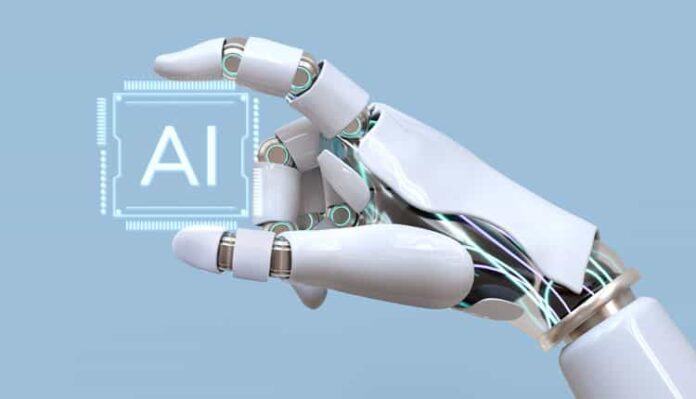Today, hardly would there be any sector, whether personal or professional, where AI (Artificial Intelligence) isn’t expected to make its intense penetration in the times to come. In this context, the higher education sector is no exception into the bargain. Before we reflect on how the advancement of AI in the higher education realm is going to transform student-educator relationships, teachers’ teaching modules, student-learning processes, and whatnot; it’s imperative to understand AI at its fundamental level. Though at its nascent stage, AI has been making waves all around the globe for accomplishing all those tasks with relatively much ease and comfort without much human intervention otherwise requiring human intelligence. Be it visual observation, decision-making ability on data analysis, doing translations between different languages, or employing voice recognition techniques, to name a few, AI can virtually do everything on the practical level. Taking such aforementioned aspects into consideration, the role AI is going to assume seems to be much bigger than what we might have earlier anticipated especially in the higher education sector. Employing AI in the day-to-day activities of any Higher University is the nearest thing to cashing in on the most upgraded and upscale technology at its pinnacle. It’s high time we paid thoughtful heed to the fact inked by Global Market Insights that AI’s market is going to rise exponentially by over 40% five years down the line. That quoted; many higher education institutions are already geared up to march to the tunes of time by tapping into the infinite potential of AI to grow their businesses by leaps and bounds. Let’s check out what possible changes the introduction of AI into the higher education sector is very likely to bring into the open.

AI can prove to be a constructive tool for higher education institutions, providing them with an endless roll of opportunities to see an evident increase in their proficiency as well as efficiency as a combined whole. In data analysis, AI can support higher universities to keep a close eye on their overall student enrollment processes over the years. The computed data is very likely to empower them in figuring out past enrollment trends as to what sort of students have applied to their campus, say, in the last five years and help them corroborate, whether or not, the professional aspirations of those students have been met from the kind of curriculum and course programs they’ve been provided with based on the algorithm predictions made on earlier student data. Even the number of future enrollments can get an uptick for the institution if, with the aid of AI, any university gets profound know-how about what kind of students be targeted in their online marketing campaigns to get real-time conversions for forthcoming admissions. In short, AI will undoubtedly avoid the need to go through repetitious, elaborate, delicate, lengthy, and cumbersome procedures, and in the wake, it’ll expedite the speed as well as improve accuracy in achieving academic and administrative objectives.
From students’ perspective, leveraging AI in their over learning methodologies and experiences would shoot up their knowledge as well as career prospects to unimaginable and uncatchable heights. They can take additional assistance of AI bots so that their queries including, needs and requests, get solved in no time. For instance, ChatGPT has proved to be disruptive invention in providing quick and efficient solutions to the queries of students, saving a considerable amount of time for the administrative staff that can further utilize their time in performing more important errands instead of getting stuck in the loop of endless queries of students that could be easily answered by a AI-powered bot.
To narrow down the gap between educational curriculum and industry needs, higher university gets a robust option to engage Artificial Intelligence to plug in the loopholes that can act as a bridge to make students industry-ready as they move out from their institutions to professional domains. Even before that, during the choosing of a course, AI can guide the prospective students in a better way about the expected changes as well as the future needs of the industry besides recommending them to cherry-pick the right courses to make sure their career goals get seamlessly achieved once the term of their degrees gets over.
Weighing AI’s pros and cons carefully
There’re always two sides of a coin so is the case with the AI. On one hand, Apple CEO Tim Cook pragmatically asserts, ‘I’m very bullish on AI’. On flip side, SpaceX CEO, Elon Musk warns the world saying ‘AI is far more dangerous than nukes’. However, looking at the widespread popularity as well as scores of buyers for AI tools in the market to grow all kinds of businesses, higher education sector too will need to get AI into its fold to stave off the threat of being left behind in this highly competitive tech-savvy world of education. No doubt, with the starter of the AI, higher education sector will experience 360* turnover when the subject boils down to enhancing teaching support and improving pedagogy techniques, facilitate student learning capacities and capabilities, smoothen the rough edges that have over the years widened the gap between university study and industry needs in lieu of bridging them Moreover, AI seems to be upbeat upon bringing about a lot of unexpected improvements in the higher education institutions for the betterment of the students and above all, helping them achieve their career goals that demands constant flexibility, adaptability as well as a unique flair for staying relevant in a technology-driven world. In nutshell, no invention or technology can be detrimental to any of us till we know how to put it to use to the best of our advantage. Overwhelming presence of AI tools and bots in higher education sector might also be feared by some Doubting Thomas who think they could pose a serious threat to the relevance of the human staff but the stark reality is that ‘Artificial Intelligence’ of Bots will always be in the need of ‘Real Intelligence’ of humans to stay weighty and purposeful no matter which professional sector we’re working in that obviously will see the inclusion of higher education sector as well!

Dr. Muskan Nagi
Assistant Professor
Gulf University

